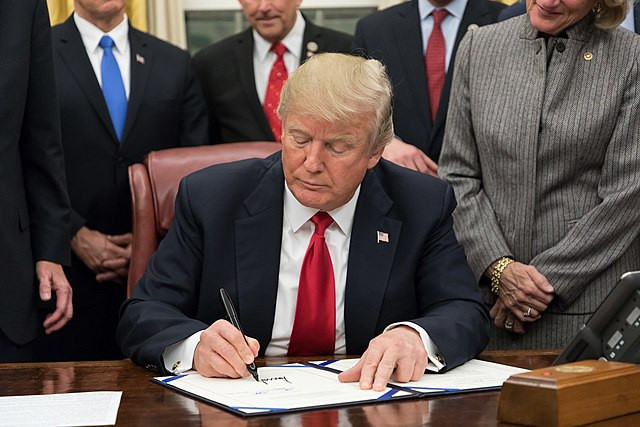President Donald Trump on Thursday signed an executive order aimed at expanding access to private equity, cryptocurrencies, and real estate investments in 401(k) retirement plans, a move that could reshape how millions of Americans invest their retirement savings.
The order directs the Department of Labor and the Securities and Exchange Commission to issue guidance that would clarify how plan sponsors can include alternative investments in defined-contribution retirement plans governed by the Employee Retirement Income Security Act (ERISA). The White House confirmed the move shortly before Trump's scheduled signing at noon.
An administration official described the order as a "signal of support" rather than a change in law. "It will still require the agencies to craft new rules. That could take into 2026," wrote Jaret Seiberg, financial services policy analyst at TD Cowen, in a research note.
The order marks a significant policy endorsement for the alternative asset industry, which has lobbied for greater access to the more than $12 trillion workplace retirement market. While pension funds and endowments have long embraced private market assets, 401(k) plans have largely excluded them due to concerns about high fees, lack of transparency, and illiquidity.
The Labor Department first opened the door in 2020 under Trump's first administration by stating that private market exposure could be permissible under certain conditions. That stance was affirmed under the Biden administration. Now, with Trump's renewed backing, plan sponsors could feel increasing pressure to evaluate private options more seriously.
Asset managers have already begun preparing products tailored to retirement savers. In May, Empower, the nation's second-largest plan provider, announced it would join firms like Apollo to launch private equity offerings. BlackRock, the world's largest asset manager, said in June it would launch a 401(k) target-date fund in 2026 with a 5% to 20% allocation to private investments.
The Investment Company Institute reported that 401(k) assets totaled $8.7 trillion at the end of Q1 2025.
Still, fiduciary obligations remain a significant hurdle. "It's going to be more complicated," said Lisa Gomez, former assistant secretary of labor for employee benefits security. She urged plan sponsors to conduct rigorous due diligence with legal counsel and fiduciary advisers. "If anyone says there are none, I would question that," Gomez added.
Sen. Elizabeth Warren has raised sharp concerns about systemic risk, particularly around the rapidly expanding private credit sector. In a July letter to Treasury Secretary Scott Bessent, Warren cited a 145% increase in bank loans to private debt funds and called for the Financial Stability Oversight Council to explore potential threats. She also requested stress testing of nonbank institutions engaged in private credit.
Meanwhile, Bitcoin rose Thursday following the news, and shares of private equity firms such as Apollo saw modest gains in early trading.






